WordPress is the most versatile, flexible, compatible and expandable CMS for blogs. Just like Microsoft Windows, due to its popularity, hackers tend to scan the web for outdated WordPress Core, Plugin and Themes, therefore your chances of being hacked is higher. This is why some people choose lesser known CMS simply because they only want a simple blog or website with minimal maintenance.
See More ➤ 10 Cheap Yet Reliable Shared Web Hosting For WordPress
Building and running a website are two very different challenges. Many CMS’s were designed by developers, for developers. Building and maintaining a site with them can be pretty complex and intimidating for someone who can’t program computers, especially those that only want to focus on writing and not coding.
Drupal and Joomla are both somewhat popular but not below the radar of hackers. Just like WordPress, they are expandable with many plugins and themes to choose from. What they are interested in is a really simple CMS for blogs that are light and easy on resources. Not everybody needs a complicated CMS like WordPress, some only need a simple website to display basic information.
1. Ghost
Privacy, security and speed are some of the most common reasons for why large companies and publications favour Ghost for their publishing needs. It is a beautifully designed platform dedicated to one thing – Publishing. Ghost is an Open Source application which allows you to write and publish your own blog, giving you the tools to make it easy and even (gasp) fun to do.
Ghost is a fully open source, adaptable platform for building and running a modern online publication. They power blogs, magazines and journalists from Zappos to Sky News. It’s simple, elegant, and designed so that you can spend less time messing with making your blog work – and more time blogging.
- Search engine optimisation – Proper SEO built in directly, with semantic markup, permalinks, XML sitemaps, canonical tags and automatic meta data with manual overrides.
- Accelerated Mobile Pages – With integrated AMP support, your site will rank higher and load in a fraction of a second from Google mobile search results.
2. Grav
Grav is an easy to use, yet powerful, open source CMS that requires no database. In a nutshell, installing Grav is a matter of unzipping the file. It is fast, has sophisticated caching, and a light footprint for optimal performance. Content is just simple markdown files in folders, with no complicated databases to deal with. A powerful API and extensive hooks allow for plugins to extend Grav. Flexible Twig templating allows easy realization of your designs.
- Stellar Performance – Grav intelligently caches content to deliver great performance, regardless of hosting
- Image Media Processing – Dynamic image manipulation to resize, crop, resample, and effects all with automatic caching of images
- SEO Friendly – Human-readable URLs along with site-wide and per-page metadata provide fantastic SEO capabilities.
3. ProcessWire
ProcessWire is designed to have an approachable simplicity that is retained regardless of scale. Simplicity often implies reduced capability, and this is not the case with ProcessWire. From the surface, there is very little complexity and the application requires no training. But open the hood, and you have a lot of horsepower at your disposal for just about any content need. The goal is jQuery or Google-like simplicity (a simple interface to powerful engineering).
4. October
October is a free, open-source, self-hosted CMS platform based on the Laravel PHP Framework. A simple and modular CMS that grows with you, with a precise and beautiful interface that comes as second nature.
- File-based templates – CMS pages, layouts and partials are just files, one file per template. This makes the website themes completely manageable with Content Version Systems like Git or SVN.
- Built-in asset combiner – CSS and JavaScript assets can be combined and minified with just a single tag in your CMS templates. Combined assets reduce the pages loading time and your server traffic.
5. Plone
Plone is an open source content management system based on the Zope application server, written in python. It is known to be powerful, reliable, secure and easy to use – Enterprise CMS. Plone excels when compared to other content-management systems in standards conformance, access control, internationalization, aggregation, user-generated content, micro-applications, active user groups and value. Plone website editing gives you more of a “wysiwyg” feel than most content management systems.
6. Fork CMS
For Marketing
Fork CMS is dedicated to creating a user friendly environment to build, monitor and update your website. They take great pride in being the Content Management System of choice for beginners and professionals. Fork CMS is jam-packed with cool apps. It comes with the territory of being a kick-ass Content Management System.
7. MODX
The MODX Digital Experience Platform provides everything you need to build, host, and maintain amazing websites your way. With MODX CMS and cloud hosting, you have complete control over your creative vision and the experiences you deliver, without restriction or compromise. You can focus more on building great digital experiences, and less on hosting and maintaining.
Total creative freedom powered by the most flexible CMS. MODX CMS supports your creative vision, with no restrictions and no compromise. Join the MODX revolution and be ready for any inspiration to come.
- Supports Bootstrap, Foundation, and any other front-end technology.
- Power React, Vue, Angular and any other Javascript projects.
- Supported HTML5/CSS3 in 2005, supporting HTML6 today.
8. Jekyll
Transform your plain text into static websites and blogs. Jekyll is a simple, blog aware, static site generator. It takes a template directory (representing the raw form of a website), runs it through and Liquid converters, and spits out a complete, static website suitable for serving with Apache or your favorite web server. This is also the engine behind GitHub Pages, which you can use to host your project’s page or blog right from GitHub.
- Simple – No more databases, comment moderation, or pesky updates to install—just your content.
- Static – Markdown, Liquid, HTML & CSS go in. Static sites come out ready for deployment.
- Blog-aware – Permalinks, categories, pages, posts, and custom layouts are all first-class citizens here.
9. Anchor CMS
Anchor is a super-simple, lightweight blog system, made to let you just write. Creating and modifying a theme is as simple as knowing some very simple PHP and HTML/CSS. Anchor gives you full freedom over your words. Just write in Markdown or HTML, whatever you prefer.
10. TYPO3
TYPO3 CMS is an Open Source Enterprise Content Management System with a large global community, backed by the approximately 900 members of the TYPO3 Association. TYPO3 CMS is free software published under the GPL license. You will never have to pay a fee for using it. This also means that everyone can improve the CMS.
- Scalable multisite, multilingual installations for global campaigns and organizations.
- Connect anything. Open, adaptable, pluggable, decoupled architecture.
- Runs anywhere. Set up new sites in minutes on your existing infrastructure.
- Blazingly fast for higher engagement and more conversions.
- Secure, respects user privacy by design.
- Vibrant professional community backed by a strong commercial ecosystem.
11. concreteCMS
concreteCMS is an Open Source Content Management System (CMS). With concrete5, you get the best of both worlds. Anyone can start making their own website in seconds, and the editing experience is easy; just click on what you want to change. Developers still get a flexible and robust framework for building sophisticated web applications. With concrete5, however, site owners will be able to make changes and additions on their own, for years to come.
- Mobile Optimized & Responsive – Your website will look good on any device. Built with modern browsers and mobile devices in mind. They employ the latest HTML, CSS and Javascript techniques.
- SEO Enabled – Concrete5 is optimized for search without any additional code or add-ons required. Improve your search rankings from the start.
- Secure – Security isn’t a luxury it’s a requirement. They employ the latest technology to protect your sensitive information.
12. Pagekit
[ Discontinued ] Pagekit is a modern and lightweight open source CMS. In the documentation you will learn how to install it, how to use the interface and how to develop extensions and themes for the Pagekit platform.
Depending on your goals with Pagekit you might want to read only pieces of the documentation or start in different places. As some starting points, they recommend the following quick links right into the different sections.
A simple ORM, the modular architecture and package management using Composer make developing for Pagekit a breeze. Data-reactive components with Vue.js put the joy back into user interface development.


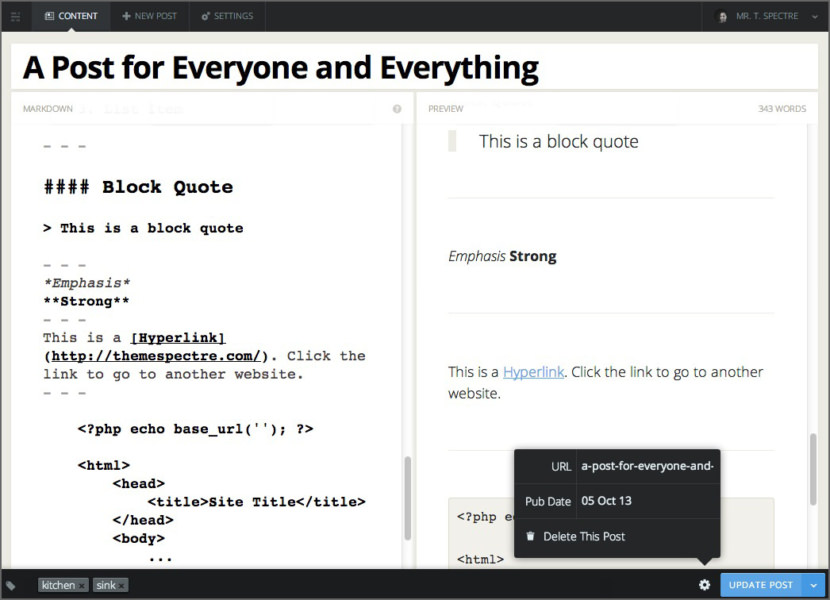
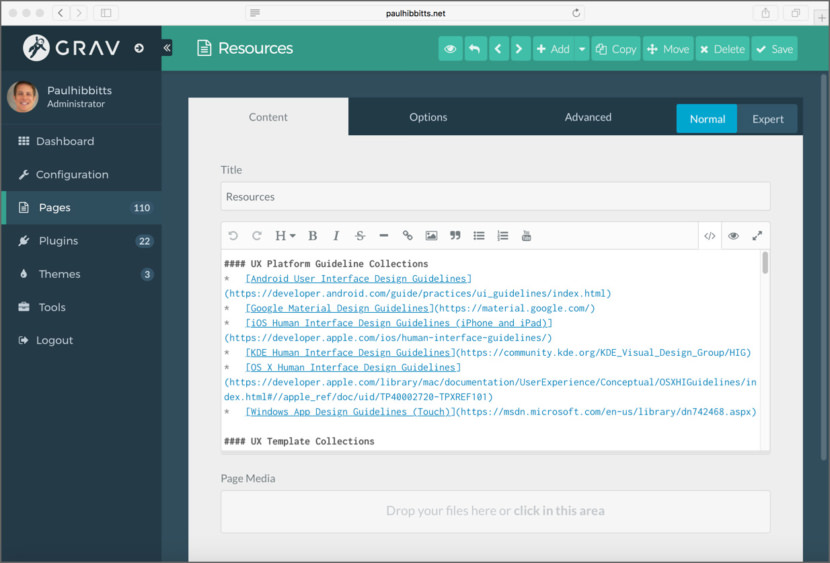
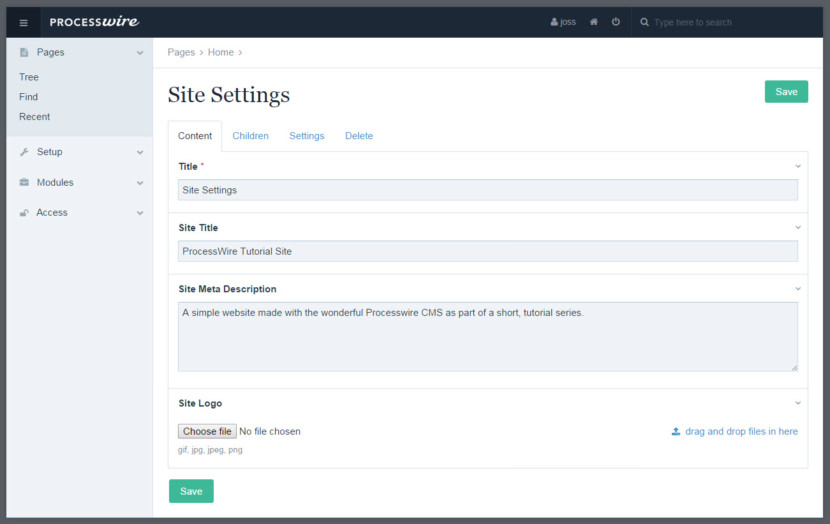
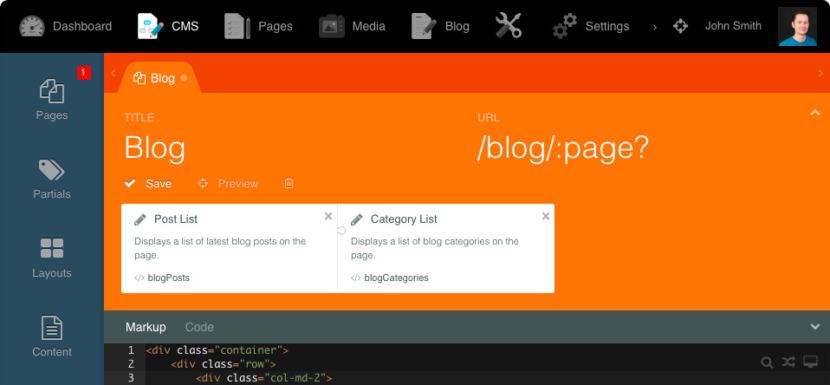
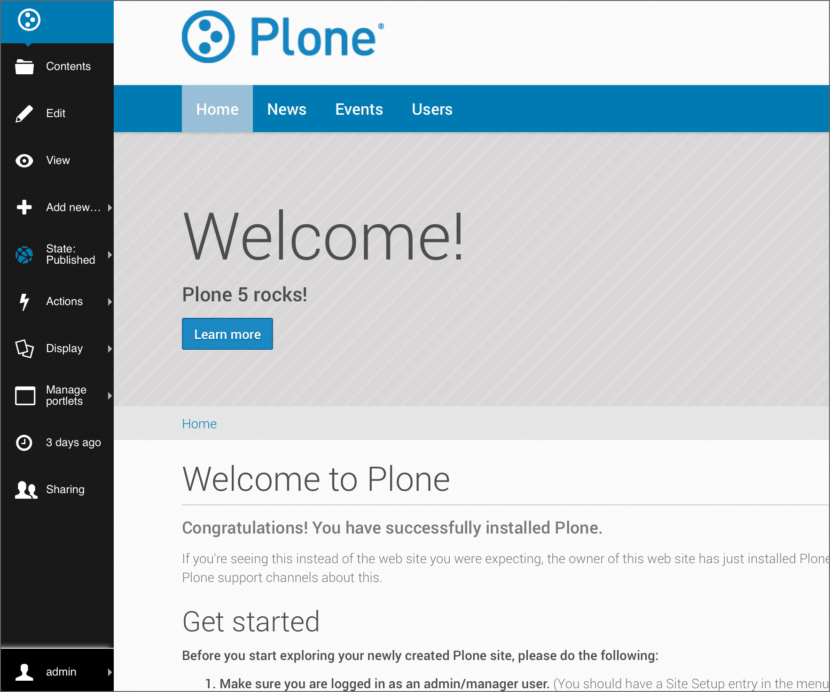
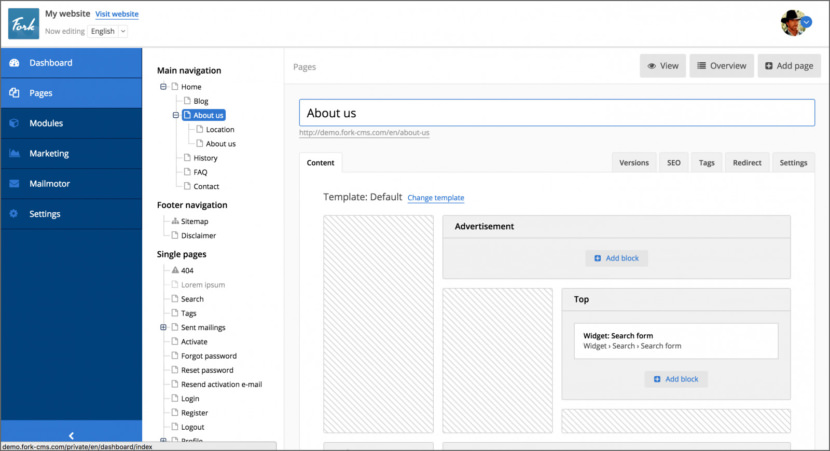
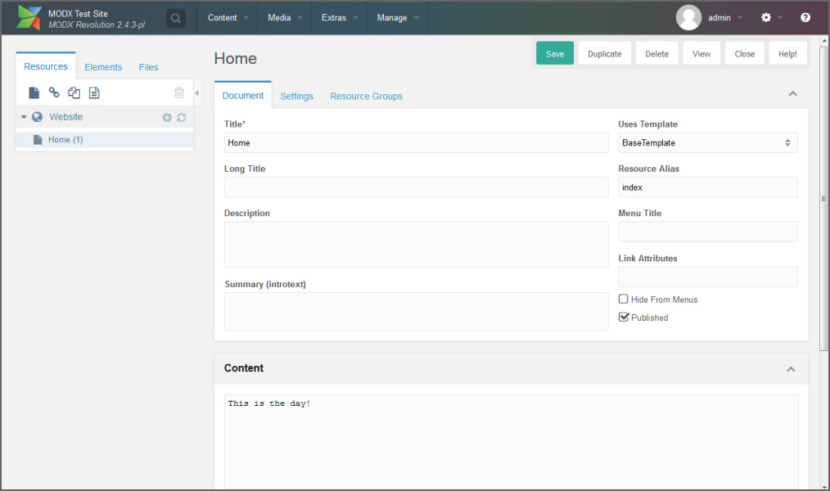
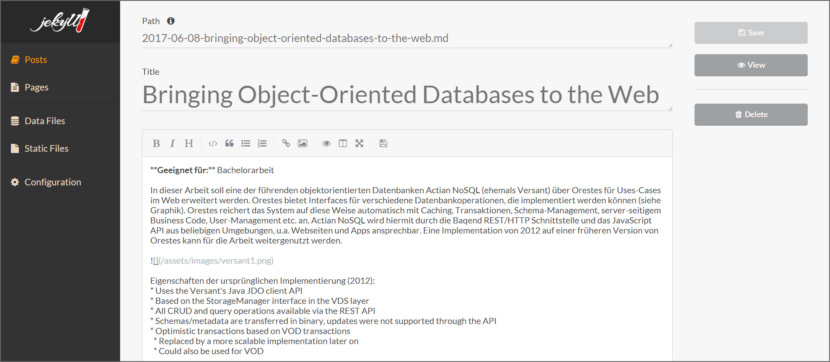
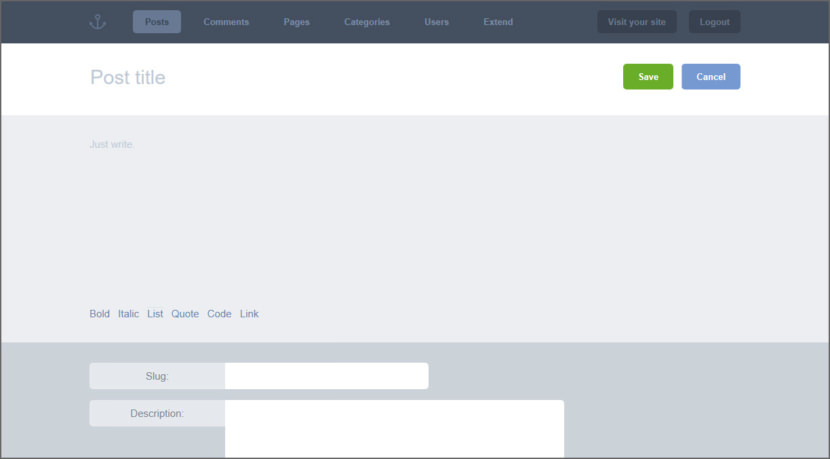
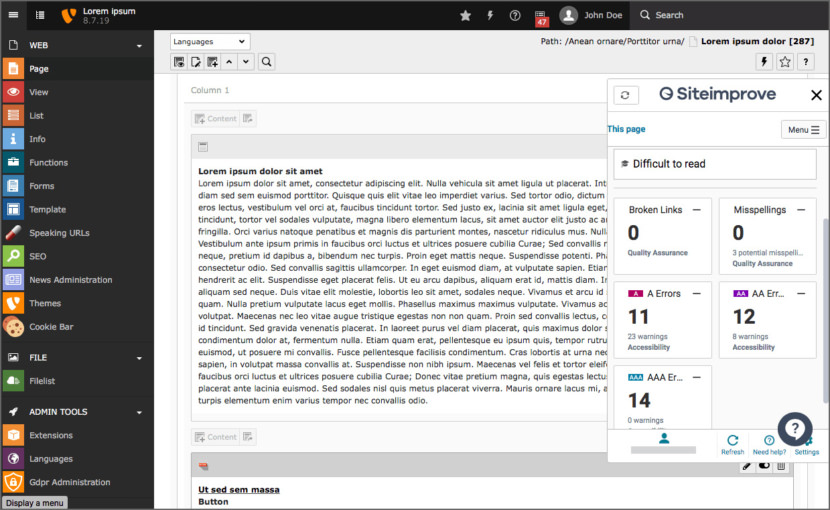
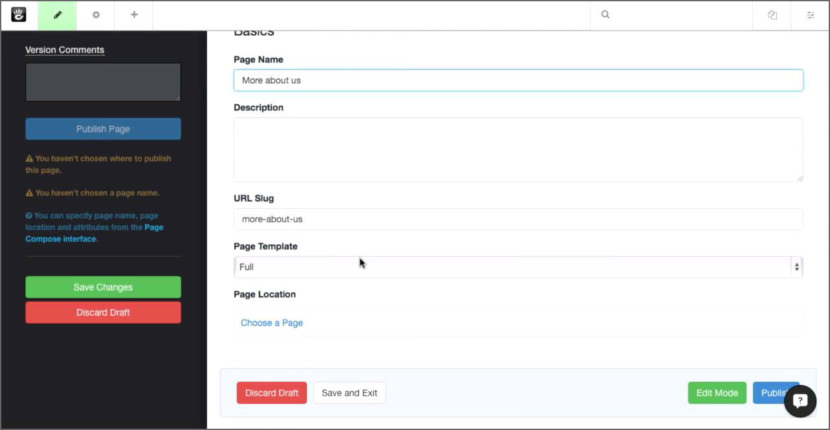
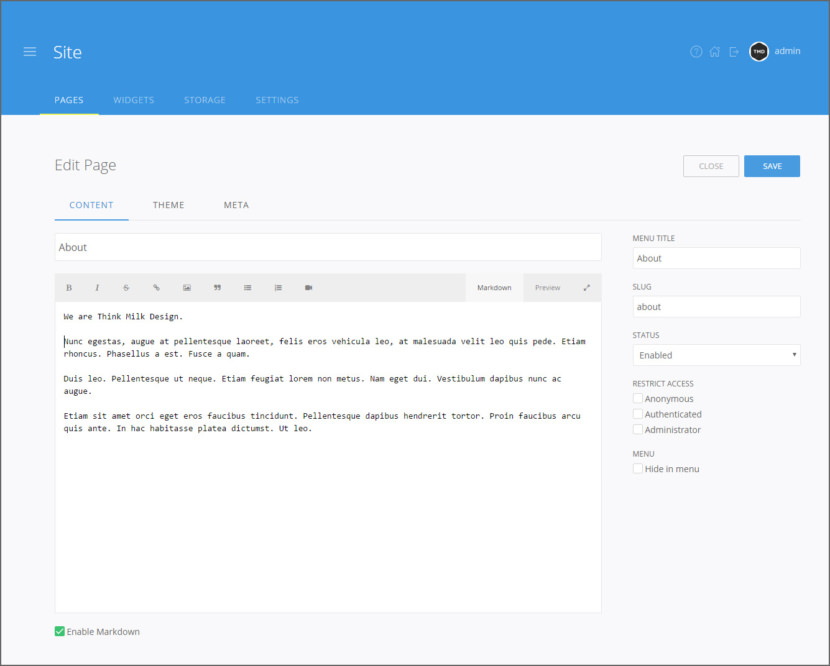
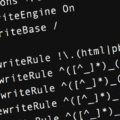


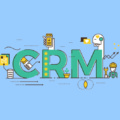
With pagekit not maintained, i don’t understand why it is included in the list